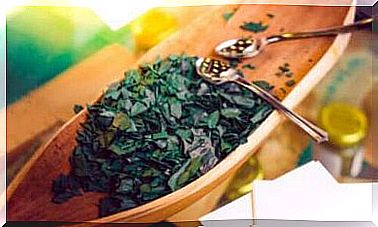Is Maltitol A Safe Sweetener?

Currently, the food industry uses different ingredients to sweeten instead of sugar. Among them, one of the best known is maltitol, a nutrient whose chemical formula represents a sugar alcohol. Although it is a sweetener found naturally in some fruits and vegetables, it is also produced artificially.
It is present in many foods commonly consumed today, such as chocolates and sweets. However, some people wonder if its consumption is safe. To resolve this issue, we detail below its main advantages and disadvantages.
In which products is maltitol used?
In an attempt to obtain sweet products and, in turn, with reduced sugar content, the food industry uses several sweeteners, such as maltitol. It can be present in products for daily use or for regular consumption. Some examples of foods in which it is used are as follows:
- Bakery products.
- Gumballs.
- Ice creams.
- Goodies and sweets.
- Milky desserts.
- Mouthwashes and toothpastes.

Is it safe to consume maltitol? Benefits and advantages
Maltitol is also known as ‘polyol’. Its advantages are as follows:
sweetens more than sugar
Its sweetening power is similar to that of sucrose, but it is not completely metabolized in the body. So, in theory, it would provide a lower caloric value. That’s why the idea came up that it could help with weight loss.
A study published in Gastroenterology Magazine concluded that maltitol absorption is almost complete; therefore, the difference between your caloric and sugar intake is minimal.
However, due to its sweetening potential, the amount of maltitol used is less than that of sugar. In this sense, it can be determined that there is a difference in total calories.
Flavor
Another advantage is that maltitol does not have the typical unpleasant taste that other sugar substitutes tend to have. Therefore, it is easily accepted by those who consume products that contain it.
Does not cause cavities
Tooth decay is one of the concerns with traditional sugars and sweeteners. However, this ingredient does not cause them. This is because it is not a substrate that bacteria in the mouth can attack, like sugar. For this reason, maltitol is used as an ingredient in mouthwashes and toothpastes.
Generates a controlled glycemic response
Sugar is a product capable of causing changes in insulin levels, as it quickly raises blood glucose. However, this sweetener does not produce these abrupt changes. Thus, the use of this ingredient can contribute to the prevention of type 2 diabetes.
It is noteworthy that this does not mean that it can be consumed freely, as it is still a product present in sweets and bakery items. The latter contain fats and other components that are also harmful.
Prevents the accumulation of fat in the liver
One consequence of too much sucrose is that it can cause fatty liver. In fact, this is because glucose that can no longer be stored turns to fat, which is a health risk. Fortunately, this sweetener does not have this effect.
Possible risks and contraindications of maltitol
There are some aspects to consider if maltitol is consumed in excessive amounts. Let’s see more details below.
May cause gastrointestinal disturbances
After consuming maltitol, some people may experience gastrointestinal disturbances such as upset stomach and nausea. This is because, in large doses, it has a laxative effect. Nor should it be ingested by people with irritable bowel or inflammation, as the body does not adapt to it.
Anyway, it is important to mention that the doses that tend to generate these symptoms vary between 30 and 40 grams per day, which is usually difficult to ingest.

Maltitol is not recommended for people with diabetes
The punctual and moderate consumption of maltitol contributes to the prevention of type 2 diabetes, replacing sucrose. Despite this, its consumption is not recommended for people who already suffer from this disease. The reason? Products containing this sweetener tend to change the glycemic index due to its composition.
Other alternatives to sugar
There are different alternatives to sugar that the market uses to sweeten their products. However, like everything else, each has its pros and cons. Some examples are as follows.
Stevia
Stevia is a plant native to South America that has been used for centuries. There is nothing more natural and healthy than using these leaves to sweeten. However, its use can be complicated.
They can be added to infusions and after 5 minutes can be removed. However, to use them in confectionery, for example, you must first make them release their sweetness in hot water, and then use this liquid as a sweetener.
There are also liquid sweeteners manufactured by the industry, but sometimes they have mixtures of ingredients and are not 100% natural. To be sure, you should check the ingredients list.
Xylitol
This is another sugar alcohol found in fruits and vegetables. Today, its main production comes from corn. As for taste, it is similar to sugar and its caloric intake is similar to maltitol.
Is it safe to consume maltitol?
It is important to note that this sweetener is used in sweet products to replace sugar. Despite the fact that its caloric content is lower than that of this ingredient, this does not mean that it can be consumed freely.
Don’t forget that a healthy, balanced diet is based on fresh, natural foods. Therefore, it is not advisable to regularly consume chocolates, sweets and desserts just because they have fewer calories due to the presence of a sweetener.
Finally, on the issue of the safety of consuming maltitol, the answer is that yes, it is safe, but in moderate amounts. Even so, it is ideal to sweeten with ingredients such as stevia or ripe fruits, as artificial sweeteners can affect intestinal health and cause complications.









